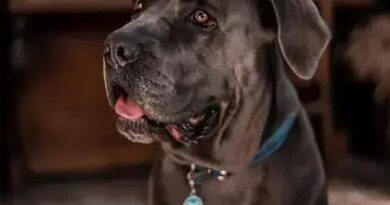What is: Appetite changes in older dogs
What is Appetite Changes in Older Dogs?
Appetite changes in older dogs can often be a concern for pet owners. As dogs age, their nutritional needs and behaviors may shift, leading to alterations in their eating habits. Understanding these changes is crucial for ensuring that your senior dog maintains a healthy diet and overall well-being.
Common Reasons for Appetite Changes
There are several reasons why an older dog might experience changes in appetite. These can include medical conditions such as dental disease, kidney issues, or even cancer. Additionally, changes in metabolism and energy levels can affect how much food your dog desires. It’s essential to monitor these changes closely and consult a veterinarian if you notice significant shifts.
Behavioral Factors Influencing Appetite
Behavioral factors can also play a significant role in appetite changes in older dogs. Stress, anxiety, or changes in the household environment can lead to a decrease in appetite. Furthermore, older dogs may become less active, which can also impact their desire to eat. Recognizing these behavioral cues can help you address the underlying issues affecting your dog’s appetite.
Importance of Regular Veterinary Check-ups
Regular veterinary check-ups are vital for older dogs, especially when it comes to monitoring appetite changes. A veterinarian can perform necessary tests to rule out any underlying health issues that may be causing these changes. Early detection of health problems can lead to more effective treatment and better management of your dog’s diet.
Adjusting Diet for Senior Dogs
As dogs age, their dietary needs may change. Older dogs often require diets that are lower in calories but higher in fiber to aid digestion. Additionally, incorporating high-quality protein sources can help maintain muscle mass. Adjusting your dog’s diet in response to appetite changes is essential for their health and longevity.
Signs of Appetite Loss to Watch For
It’s important to be vigilant about signs of appetite loss in older dogs. These can include a reluctance to eat, leaving food in their bowl, or a noticeable decrease in enthusiasm during mealtime. If you observe these signs, it may be time to consult with your veterinarian to determine the cause and appropriate course of action.
Hydration and Its Role in Appetite
Hydration plays a crucial role in a dog’s appetite. Older dogs may become dehydrated, which can lead to a decrease in their desire to eat. Ensuring that your dog has constant access to fresh water is essential. Sometimes, adding wet food to their diet can help increase their fluid intake and stimulate their appetite.
Impact of Medications on Appetite
Many older dogs are on medications for various health issues, and these can sometimes affect their appetite. Certain medications may cause nausea or gastrointestinal upset, leading to a decrease in food intake. If you notice changes in your dog’s appetite after starting a new medication, discuss this with your veterinarian to explore potential alternatives.
Creating a Positive Mealtime Environment
Creating a positive mealtime environment can significantly impact an older dog’s appetite. Reducing distractions, providing a comfortable space, and maintaining a consistent feeding schedule can encourage your dog to eat. Additionally, offering a variety of food textures and flavors can help stimulate their interest in food.
When to Seek Professional Help
If your older dog experiences persistent appetite changes, it is crucial to seek professional help. A veterinarian can provide guidance on dietary adjustments, conduct necessary tests, and recommend treatments to address any underlying health issues. Timely intervention can make a significant difference in your dog’s quality of life.




